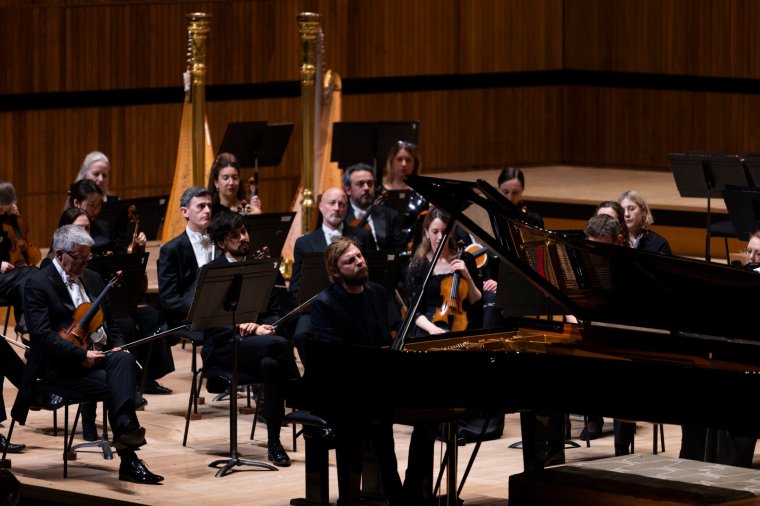No evening starts on the right foot when a superstar soloist is off sick. When it turned out that pianist Yunchan Lim is being treated for a hand injury and could not play in the Royal Philharmonic Orchestra concert at the Royal Festival Hall, swathes of the audience evaporated. Lim is the piano world’s latest true sensation, a 20-year-old whose performance of Rachmaninov’s Concerto No 3 won the Van Cliburn International Piano Competition and has since had 14 million YouTube views. Not easy shoes for a replacement to fill.
Denis Kozhukhin stepped in, tawny of beard, golden of man-bun, and with muscular hands the size of beefsteaks. He performed that same giant Rachmaninov concerto with its gazillions of notes correct, clear and even, in the main at a volume that could probably have reached Waterloo station. Emotionally it was cool, without being entirely cold; but the moments of magic it can offer did not always come through, beyond glittering whimsy in the final movement.

If Kozhukhin sometimes seemed a long-distance runner, he was never lonely: the RPO’s principal conductor Vasily Petrenko ideally honed and balanced the orchestra, finding enchantment there instead, whether through three horns sliding through mysterious modulations, soulful woodwind solos, or the finale’s snappy strings. Kozhukhin’s brief Tchaikovsky encore (“In a Church” from Album for the Young) nevertheless spoke poetic volumes about suppressed tragedy; perhaps “Rach Three” simply does not bring out his very considerable best.
Those who did not stay for Elgar’s Second Symphony missed a major treat. Elgar’s finest orchestral work is in some ways an almost unfathomably personal outpouring, in others a lament for the Edwardian era, filled with foreboding (it’s from 1911). The composer prefaced it with words from Shelley, “Rarely, rarely comest thou, Spirit of Delight”; the music seems to glimpse, lose and continually seek that elusive joy.
Petrenko has made Elgar his own: this was a riveting performance, full of depths and subtleties, with fabulous, unerring pacing and malleable transitions from one state of being to another – these happen frequently in the work – that always brought deepening revelations into the work’s philosophical condition. The orchestra palpably gave its all.
The concert had opened with the overture to Ethel Smyth’s opera The Wreckers, which sets a story about a toxic coastal borough decades before Benjamin Britten’s Peter Grimes. Smyth packs it with stormy musical ideas, yet this performance primarily offered elegance and bounce. Still, it was good to hear it at all.
Five stars to the Elgar, three to the rest.


